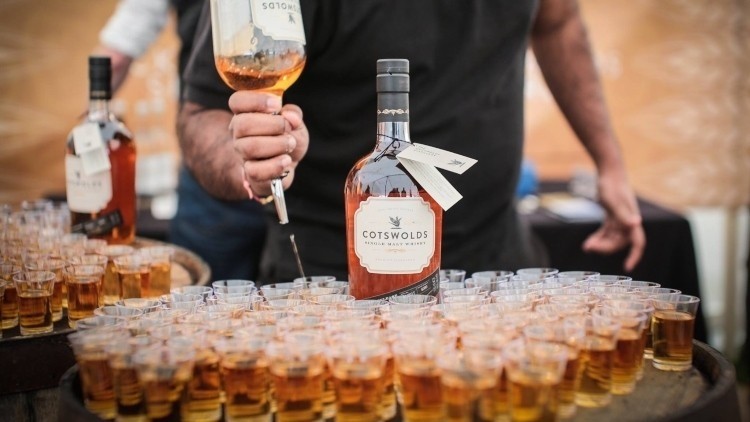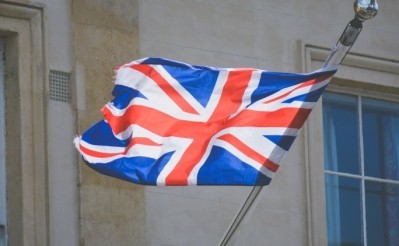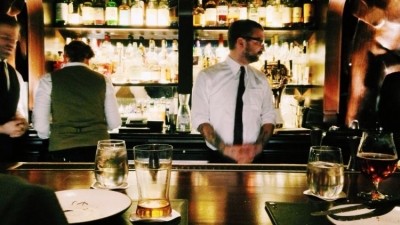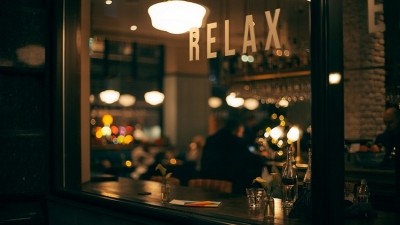Brexit will be at ‘worst time’ for premium spirits producers

Daniel Szor, the founder of Cotswolds Distillery, said he felt spirit lovers would feel less inclined to buy premium versions if there were economic troubles following the UK’s departure from the EU.
The distillery founder said he felt particularly worried about a no-deal outcome and wanted clarity “as quickly as possible”.
While people may still feel like drinking spirits at the pub or at home is an ‘essential’ activity, drinkers could feel less inclined to spend more on premium and super-premium spirits, he said.
He said: “People tend to buy luxury products when they’re feeling generally pretty good about themselves and their economic lot in life.
“So I would argue that all makers of premium products, luxury products – and that goes particularly for food and drink in the sort of artisanal and local products sector – are going to suffer.
“People are going to spend less money because they’re going to be more worried about the future. That’s not a good thing to be happening at this point in time when economies in the west are looking a bit fragile and like they might dip into recessions. It's pretty much the worst thing at the worst moment.
Szor added: “I don't see any way in which a no-deal Brexit is going to make Britain feel good about itself economically, the country is already looking as though it may be tipping into recession.
“I just can't see businesses picking up at a time where people are worried about their jobs.”
Very complicated
Szor said there was also anxiety about Brexit’s impact on the flow of goods, which he worried would have an impact on ingredients that were imported from the EU – including gin botanicals and bottles.
He added: “These are things that are always, no matter what, at first are going to be very complicated – and to have that happen in the first few weeks of November is really pretty horrible.
“Will there be a shortage of gin? I can't really say that I know that that is going to be the case.”
The delayed date of 31 October had increased worry at the company, he said.
He explained: “It was bad enough when everybody was geared up for 29 March but this is much worse, 31 October is a much worse time of year. It's about the worst time of year this could happen for the spirits industry.”
“So much in our business comes out of the way people manage their Christmas. I just can't see people feeling particularly extravagant following a no-deal Brexit.”
Szor estimated that revenue from the Christmas season makes up around 40% of the company’s revenue for the whole year.
Significant risk
Wine & Spirit Trade Association chief executive Miles Beale advised producers to prepare for a no-deal eventuality earlier this summer.
He said: “We spent an enormous amount of time helping our members ensure that the UK wine and spirit trade was prepared for a no-deal Brexit in the run-up to the original 29 March deadline.
“We continually engaged with Government to make sure they understood the consequences for businesses upon leaving the EU without a deal.
“Sadly, ‘no deal’ is still not off the table. As a global industry, a no-deal Brexit and the uncertainty it would bring still poses a significant risk to our members and we continue to work tirelessly to ensure their voices are heard.
“The businesses the WSTA represents have tackled this challenge head on for three years and will continue to do so, so that the industry – worth £49bn to the UK economy – will continue to thrive in a post-Brexit world.”
Data from Barclaycard released earlier this month suggested that pubs had been able to buck a wider trend of subdued consumer spending.
Spending in pubs grew by 10.9% year on year in August, with drinks-focused businesses enjoying particular success, despite people reporting anxiety over stockpiling everyday items and rising prices.







